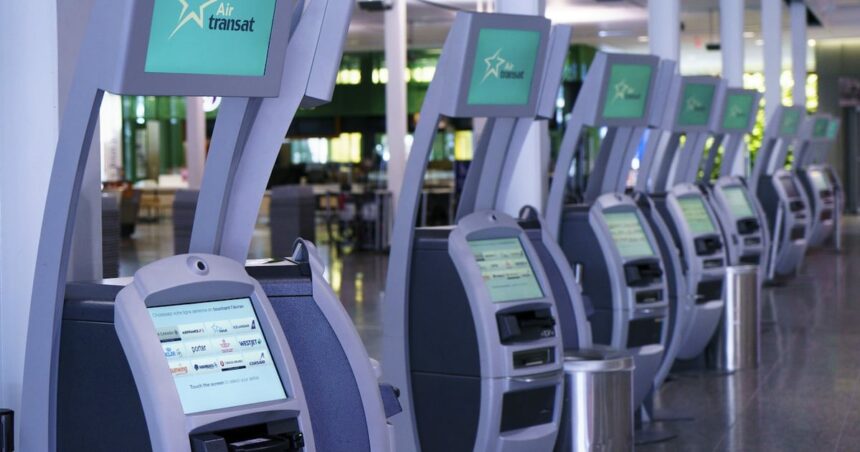Transat A.T. shares soared 32% yesterday after the Canadian vacation operator announced a major restructuring of its pandemic-era debt, a pivotal moment for the Montreal-based airline that had been fighting to regain financial stability since 2020.
The deal, finalized after months of negotiations with creditors, will convert $300 million in high-interest loans into equity and extend payment terms on remaining debt until 2029, giving the airline critical breathing room as the travel industry continues its post-pandemic recovery.
“This restructuring represents the final chapter in our pandemic recovery story,” said Annick Guérard, President and CEO of Transat, during an investor call. “We’ve weathered the most challenging crisis in aviation history, and now have the financial flexibility to focus on growth rather than survival.”
The restructuring comes at a crucial time for Transat, which reported a narrower quarterly loss of $18.5 million last month compared to $56.7 million in the same period last year. Passenger numbers have rebounded to 112% of pre-pandemic levels, while revenue per available seat mile has increased 7.8% year-over-year.
Industry analysts view the deal as transformative. “This is exactly what Transat needed,” said Cameron Doerksen, transportation analyst at National Bank. “With this debt burden lifted, they can compete more effectively against Air Canada and WestJet on vacation routes to Europe and the Caribbean.”
The restructuring also signals a potential shift in Canada’s airline landscape. While CO24 Business reported earlier this year that consolidation was expected among smaller carriers, Transat’s improved financial position suggests it may now be positioned as a buyer rather than a target.
The airline’s stock, which had traded below $3 earlier this year, closed at $5.17 yesterday as investors embraced the company’s improved debt profile. Trading volume exceeded 3.2 million shares, nearly eight times the daily average.
Financial terms include converting $300 million of the government-backed Large Employer Emergency Financing Facility (LEEFF) loans into company shares at $4.25 per share, representing a 15% premium over Transat’s 30-day average before the announcement. The remaining $198 million in debt will be refinanced at more favorable rates.
Transport Minister Pablo Rodriguez called the deal “a win for Canadian travelers and the aviation sector,” noting that taxpayers would recover the full value of government assistance provided during the pandemic crisis.
For travelers, the restructuring likely means Transat can maintain competitive pricing while investing in fleet modernization. The airline has already announced plans to add four new Airbus A321LR aircraft to its fleet in 2026, enabling more fuel-efficient transatlantic routes.
“Airlines globally are still dealing with pandemic aftermath,” explained airline industry consultant Robert Kokonis. “What sets Transat apart now is they’ve addressed their debt situation while competitors like Sunwing have been absorbed by larger entities. They’ve preserved their independence and brand identity.”
As summer travel season approaches, Transat expects to operate at full capacity to Mediterranean and Caribbean destinations. The financial restructuring will allow the company to compete aggressively on price while maintaining service quality, a delicate balance that pandemic-weakened carriers have struggled to achieve.
The question now facing Transat is whether it can translate financial stability into market share growth in an increasingly competitive landscape where travelers have become more price-sensitive and discerning about airline reliability.
























